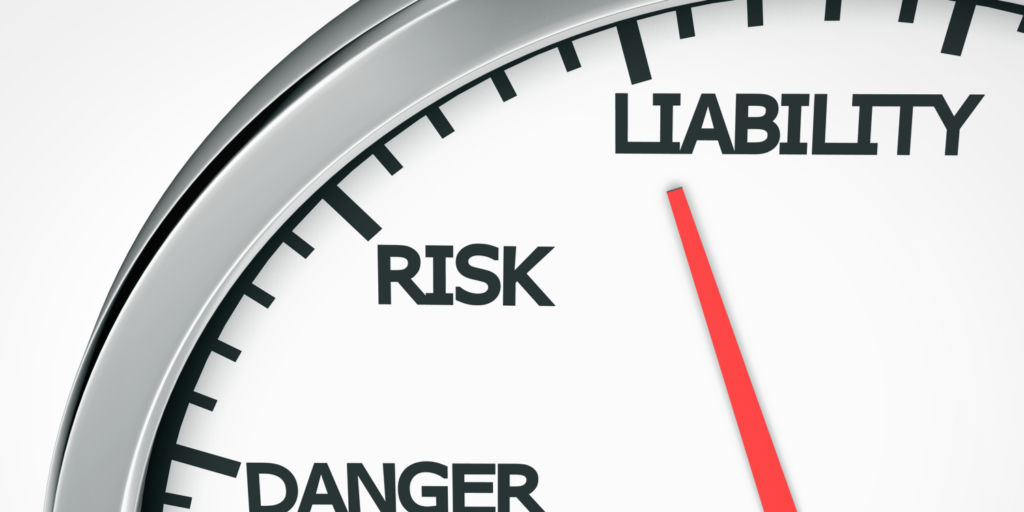A sole trader is a self-employed person who owns and operates their business as an individual rather than through an incorporated business structure, such as a limited company or limited liability partnership. There’s no legal distinction between the individual and the business – the person is the business.
However, while a sole trader owns and controls 100% of the business, they don’t have to work or run it alone. They can employ staff on a permanent or part-time basis, just like any other type of commercial enterprise.
Below, we discuss the advantages and disadvantages of running a business as a self-employed sole trader. This information should give you a basic understanding of the structure and help you to decide whether it’s suitable for your needs.
The advantages of being a sole trader
1. Simplicity
As a sole trader, there is no need to deal with the formality and documentation involved with setting up a limited company or limited liability partnership (LLP).
You can start doing business straight away, without even needing to choose a business name or set up a business bank account.
2. It’s free to register as a sole trader
There is no registration fee to start a business as a sole trader. Although the cost of setting up a limited company is minimal, there is no cost whatsoever to register as a sole trader.
3. Less administration and fewer reporting requirements
As a sole trader, there is no need to generate any annual business reports or make annual filings to Companies House (e.g. accounts and confirmation statements). The only paperwork you need to submit is an annual Self Assessment tax return.
4. Confidentiality
Sole traders have much more privacy in terms of their business dealings compared to limited companies. There is no need to publicly disclose a registered office address, details of the person who owns the business, or annual accounts.
Generally, you only need to share information about the business on the Self Assessment tax return – and this can only be viewed by HMRC.
5. No directors’ duties
Sole traders are not subject to any of the requirements of the Companies Act 2006. In particular, they don’t have to follow Chapter 2 of the Companies Act, which specifies the general duties of directors (e.g. duty to exercise independent judgment; or the duty to avoid conflicts of interest).
Since sole traders don’t have to consider any shareholders, they are not regulated in their actions and are therefore more at liberty to take financial risks. Conversely, if a company director makes a very risky business decision, this could contravene their directors’ duties under the legislation.
6. Flexibility
Sole traders can convert to a limited company relatively easily and quickly if they decide to adopt an incorporated business structure.
There is no paperwork involved with ending the business as a sole trader, whereas closing a limited company is more difficult.
The disadvantages of being a sole trader
1. Personal liability
Sole traders are personally responsible for all business debts and liabilities. Unlike company shareholders, there is no limit on a sole trader’s liability if the business gets into financial difficulty.
Any debts owed to creditors will need to be paid out of personal assets if there is insufficient money in the business. This can extend to property, including their own home, and can result in personal bankruptcy.
The unlimited liability of being a sole trader can be a huge risk for anyone with extensive personal assets. It may also prevent business expansion by those who are more risk-averse.
2. Marketing and credibility
Some people prefer to deal with limited companies because sole traders are often considered higher risk. This perception is possibly due to a sole trader’s unregistered status, whereas established and sizeable businesses generally trade as limited companies.
In commercial dealings, people trust ‘big business’ because they are presumed to have the resources, infrastructure, and preparedness to supply the highest quality products or services in the most efficient manner; provide reliable safeguards, and remedy any problems or mistakes that may occur.
Indeed, this problem is magnified in the business-to-business sector, where the majority of large companies have a policy of only dealing with other incorporated entities.
3. Raising capital
Sole traders can struggle to raise capital. Since they do not have to submit annual accounts, this reduced financial transparency can also hamper their ability to get bank loans.
Potential investors may also be put off as they cannot be offered shares (a financial stake) in the business. Even if a sole trader is doing exceptionally well, they do not have the option of raising substantial capital, e.g. by inviting third parties to invest and become shareholders in the business.
4. Tax efficiency
Sole traders are required to pay Income Tax on the full extent of their profits each year. This is in contrast to limited company profits, which are liable to lower rates of Corporation Tax.
They are also unable to pay themselves a combination of salary and dividends (like company owners) or re-invest surplus income in the business as retained profit.
All of this means that sole traders do not enjoy the tax efficiency afforded to owners of limited companies.
5. Transfer of business ownership by sale or succession
It is much easier to transfer ownership of a limited company than an unregistered entity.
Sole trader businesses cannot be seamlessly transferred to another party or a successor, since the individual sole trader is the business. Whereas, ownership of limited companies (which includes clients, inventory, equipment, and premises) can easily be sold or passed on to family members via the transfer of shares.
When a sole trader dies, their business effectively dies with them. With a limited company, as long as there is one director and one shareholder in place, the company will continue to exist.
6. Business name protection
A sole trader’s business name has limited protection. Generally, anyone can set up a business and start trading using the same name. The only protection open to an unregistered entity is the law of ‘passing off’, which is complicated and often unsatisfactory, i.e. it is not easy to prove the intention that someone is trying to steal your goodwill.
On the other hand, a limited company’s name is registered at Companies House. This means that no one else can register the same name or even one that is deemed to be too similar. Many people set up a limited company solely for the purpose of protecting the name of their business.
1st Formations offers a Reserve a Company Name Package at a cost of £119.99 plus VAT. This package provides a limited company formation, registered office, confirmation statement, and dormant company accounts filing services.
Can I switch from being a sole trader to a limited company?
Yes, many sole traders decide to convert to a limited company once they reach a certain point, for example, when their annual turnover reaches a specific level, or they wish to expand the business without increasing their personal risk.
The first step in this process is to register a limited company. This can be done from as little as £52.99 through 1st Formations.
A good place to start is with our online company name checker, where you can check if your preferred company name is available. The application process takes about 15 minutes. Once complete, your new company should be approved by Companies House and ready to trade in just 24 hours.
- Limited liability: what does this mean for you and your company?
- How to protect a business name
- Full Company Secretary Service
As well as registering the company, there are a number of other things that need to be done. Here is a checklist of tasks involved in converting from a sole trader to a limited company:
- Register a limited company at Companies House
- Inform HMRC that you have decided to stop being a sole trader
- Transfer your sole trader business and business assets to the limited company
- Set up a business bank account in your limited company name
- Notify stakeholders about the change of business structure
- Register your limited company for Corporation Tax and PAYE
Check out 1st Formations’ blog explaining the process in detail: How to convert from sole trader to limited company
So there you have it!
We have covered the advantages and disadvantages of owning and operating a business as a sole trader and discussed how to convert to a limited company.
As decisions go, this is a relatively significant one, so it is worth taking your time to carefully consider your options to determine which business structure is right for you.
If you have any questions, please leave them in the comment section below. Alternatively, contact us by phone, email, or our online chat facility.
Please note that the information provided in this article is for general informational purposes only and does not constitute legal, tax, or professional advice. While our aim is that the content is accurate and up to date, it should not be relied upon as a substitute for tailored advice from qualified professionals. We strongly recommend that you seek independent legal and tax advice specific to your circumstances before acting on any information contained in this article. We accept no responsibility or liability for any loss or damage that may result from your reliance on the information provided in this article. Use of the information contained in this article is entirely at your own risk.












Join The Discussion